Healthy airflow and ventilation in commercial buildings is vital to protect the building occupants and visitors from indoor air pollutants, and enhance their health, comfort, and work efficiency. Regular maintenance of air filtration systems, including high-efficiency filters and air cleaning devices plays a key role in protecting against contaminated particles, harmful gases, and unpleasant odors.
Air Filtration Basics
In the aftermath of the Covid-19 crisis, there is a heightened recognition of the need for clean filter air in commercial buildings as a way to ensure reduced exposure to the virus. Close contact is not the only way for infection disease transmission to occur, and poor air filter efficiency or faulty installation and maintenance of your HVAC system and other ventilation devices can also contribute to the virus spread.
The facility managers and property owners of commercial buildings now have an increased responsibility to balance the unique needs of tenants and visitors, while staying focused on cleanliness, hygiene, and disease control as far as possible.
My Recommendations
Indoor Air Quality Expert: “Covid 19”
The First Thing You Should Know About Indoor Air Quality…
Even before the Covid-19 outbreak, commercial buildings have always been exposed to the risk of countless viruses that are present in the indoor air as well as on the surfaces. Airborne disease transmission through microparticles is easy because these viruses can often remain hanging in the air for hours. Indoor air quality is most critical because, in confined spaces, air continues to recycle, thus increasing the risk of catching viral infections. And if you are thinking to get an underground room, indoor air quality has to be on top priority.
In a commercial HVAC system, the ventilation is designed to remove the chemical and dust particulates and toxic microorganisms. However, these harmful substances have to be released somewhere. It partially gets stuck in the ductwork and air filters, while some of it just remains in the system. Periodic maintenance and cleaning of the ventilation are critical to prevent any obstruction, apart from helping avoid a low-efficiency operation of the unit.
Filtration Is The Key
A clean and well-maintained system will extract the contaminants and ensure cleaner airflow. During the flu season or in the event of any type of viral outbreak, the property managers or building owners must pay attention to whether the air filtration system is old and has collected dirt (which could also create conditions for mold). Cleaning or replacing the filtration may be the first priority to ensure fresh and healthy filter air.
The cleaning and maintenance service provider should also look at the condition of the seals and gaskets to ensure the elimination of any possible by-pass air. Experienced air-conditioning engineers and cleaning experts can provide reliable solutions to eliminate harmful pathogens and help in infectious disease control through the removal of airborne microbiological contaminants.
Filtration Stages
HVAC systems and air cleaning devices such as ozone generators, ionizers, and ultraviolet (UV), and plasma-based gadgets may operate at low efficiency if the indoor air quality is poor. The key to improving the air quality in commercial buildings lies in choosing the right type of air filtration system. Your facility maintenance service provider should know the distinction between different qualities and standards, and how each type of filter absorbs particulate matter with varying degrees of efficiency.
How To Select An Air Filter
You need practical, high-efficiency filters that cut down the concentration of indoor air pollutants to combat influenza and other viral and bacterial infections and also ensure reduced exposure risks of Covid-19. Your facility maintenance company should know the MERV rating (Minimum Efficiency Reporting Value) of the air filters before recommending a replacement or an upgrade.
Choosing The Right Filter
A greater number of particles will be eliminated with a filter that has a higher MERV, but that filter will also allow less air to clear through it. Therefore, it is vital to determine the right balance between particle filtration and air resistance. The HEPA filter is a specific filter with the highest MERV ratings (HEPA filter stands for “high-efficiency particulate air”).
Filters with MERV 1 to 4 have a low efficiency of particulate capture, MERV 5 to 12 are moderately efficient, while MERV 13 to 16 are highly advanced filters for capturing microscopic particles. A knowledgeable commercial building cleaning expert can help you choose the most appropriate types of air filters to match the requirements of your building.
How to Maintain Your Commercial HVAC System Air Filtration?
To ensure that your perfect enclosed patio idea works, get an HVAC system operates as intended, it is important to periodically inspect and maintain high-efficiency filters. Failure to use the appropriate air filtration system or poor maintenance of the filtered air can lower your indoor air quality while pushing your HVAC unit to work harder than required. For your commercial building ventilation system, a cleaning and maintenance expert may recommend MERV 8-14 rating.
The National Air Filtration Association and the American Society of Heating, Refrigerating, and Air-Conditioning Engineers (ASHRAE) provide professional guides for air filtration and air cleaning in commercial buildings. Qualified and dependable ventilation cleaning services providers will abide by the best industry standards and guidelines to deliver the sustainable results that you are looking for.
Do They Have to Be Cleaned?
The facility maintenance specialist will be able to evaluate whether your building filtration is operating at an optimal level. They will utilize sensors built around the filtration system to measure the drop in air pressure across the filter. Correct air filtration system installation in your HVAC and proper calibration of the sensors will allow for your accurate monitoring and maintenance of your commercial building ventilation system.
If the air pressure drops are found to be beyond the expected range, it may indicate that either your installation is faulty or the filter is clogged. Experienced building maintenance specialists will not just depend on the automated sensor feedback when assessing whether your HVAC system air filtration system needs to be upgraded or replaced. They will also perform visual inspections to corroborate their findings. If the filters are physically seen to be dirty, it may be time to change them.
Frequently Asked Questions (Faq)
In the backdrop of the Covid-19 or Wuhan virus pandemic, it is pertinent to understand how infectious disease transmission of respiratory viruses such as the novel coronavirus occurs, and what commercial building facility managers and owners can do to prevent or mitigate the risk.
Q: Can Covid-19 spread through the air?
Yes. Research shows that an individual suffering from a virus-based respiratory infection, such as Covid-19 or the common flu can generate tiny droplets through coughing and sneezing. These droplets can contain the virus, which can be as small as 0.5 microns (one-thousandth of a millimeter) or big enough to be visible to the naked eye. The virus can travel through these droplets in the air and cause transmission of the disease.
Q: What can be done to reduce the risk of Covid-19 and other airborne viruses spreading in a commercial building?
If you are using the re-circulation of air in your building, you should switch to 100% supply air to improve ventilation. Viruses are more likely to spread in the building from inside rather than from external sources. Increased supply of fresh air will dilute the presence of viruses in the air and cut down the risk of spread throughout the confined spaces.
Q: Will the Installation of Air Filters Reduce the Risk of Covid-19 in the Building?
Yes. However, the efficacy will depend on how efficient is your air filtration system and how well-maintained it may be. Droplets that are more likely to carry the infection are typical of a size of at least one micron or higher, so the chances of virus transmission can be significantly reduced with a HEPA filter or with other high-efficiency filters.
Q: Does it make sense to upgrade the air filters in the aftermath of the Covid-19 pandemic?
In principle, upgrading to a higher efficiency air filtration system will mitigate the risk of Covid-19 spread in a better way. But your facility maintenance expert will focus on other considerations as well. For example, they will assess whether the air handling unit is capable of dealing with the higher air resistance over the filter? Are the gaskets and other seals sufficiently secure to justify the upgrading of filters? Generally speaking, upgrading the filter by one or two notches should not create an issue. But a significant upgrading will require additional evaluation and steps.
Q: Once the air filter captures the Covid-19 virus, can it get released back into the building environment?
No. Once the novel coronavirus or other such airborne viruses are captured in the air filter, they will be firmly bound to the filter media fibers. Therefore, after it has captured, the virus will remain stuck and eventually become inactive (in other words, it will die.) Research has shown that these infectious viruses, including Covid-19, do not survive for very long on open surfaces.
Q: Is it necessary to replace the air filters in every commercial building after the Covid-19 pandemic?
No, it is not required in every case. They will need to be periodically replaced because of the high-pressure drops or some other hygiene-related reasons. But it is not necessary to do so just because of the coronavirus outbreak. However, it is vital to follow proper building cleaning and maintenance protocol with a certified facility maintenance provider.
Q: What else can be done to improve the indoor air quality of the building?
Use air cleaning devices for improving internal airflow and ventilation. A number of air cleaners, ionizers, ultraviolet (UV) devices, and ozone generators are available on the market, which can fight indoor air pollutants. With air purifiers and air cleaners, the benefit is that you can apply superior air filtration efficiency to areas where it may have otherwise been difficult. Particularly in high-risk zones in the building (such as waiting areas where many people come together), it is prudent to make use of air cleaners.
Air Filtration is Essential
While it is not mandatory to change your commercial HVAC system air filters following the Covid-19 crisis, it is more necessary than ever to follow the recommended maintenance schedule. If the change is due according to your facility maintenance provider, you must not delay it. Airflow will deteriorate if you keep using air filters that have lived out their life. Moreover, low-efficiency operations will eventually increase your energy bills and other building hygiene issues will also come into play over time (such as mold growth and unpleasant smell).
Correct air filtration is one of the simple ways for commercial property managers and building owners to run their building cost-effectively and efficiently while prioritizing the health and comfort of the building occupants and visitors. It is best to consult with a reliable and reputable facility maintenance company before you go ahead with making an upgrade or changes to your air filtration system. They can determine how your HVAC system can best meet your unique building requirements.
Air Filtration Efficiency
Air filters with a MERV of 8 to 10 are commonly used for commercial buildings. In specialized building facilities, such as hospitals, it may be necessary to use HEPA filters, which have a higher MERV rating of 17 to 20. The HEPA filter can eliminate extremely tiny viruses and particles of up to 0.3 micrometers. But high-pressure drops are more likely to occur when you increase the filtration efficiency of the HVAC system to these levels.
The pressure drop will obstruct the airflow of the HVAC. Another concern with replacement is air bypass. This occurs when rather than passing through the filter the air begins to move around it. Incorrect installation and sizing issues can significantly reduce the efficacy of your HVAC filtration system.
Commercial facility managers should know while switching to a dependable air filtration system would cost more than a basic repair, but the costs are worth it in the long run in terms of improved building efficiency and health value for the tenants who occupy the building. Research also shows that clean and healthy indoor air quality can increase worker productivity over time.
Office Air Quality
The concentration of indoor air pollutants can be far higher than the contamination in outside air. Businesses need healthy environs for people to work safely and comfortably. Following the Covid-19 outbreak, there is an increased consciousness among commercial building owners and facility managers to improve the indoor air quality and safeguard the health of building occupants.
Identify the Risks
Harmful viruses, bacteria, and other microorganisms, foul odors, chemical fumes, gases, particulates, and ozone are key risks in the confines of a commercial building because they can potentially damage the health and immunity of the occupants. Worse still, the Covid-19 pandemic has shown that ignoring the indoor air quality can become a hurdle in disease control and fighting infection transmission.
The more pollutants and harmful microbes that people ingest while they are present in the building, the higher is their risk of catching an infection or illness. It is also important to fully recognize and appreciate the potential benefits of fresh and clean indoor air. Over time, it will lead to healthier lungs, a stronger immune system, improved digestion and blood pressure, reduced asthma symptoms and allergies, better sleep, positive mood, improved productivity, and lower healthcare costs.
Perform Periodic Ventilation Checks
Periodic checks in the building’s AHU (air handling unit) must be performed to make sure that the gaskets are delivering proper sealing and no air filter bypass is occurring. If the AHU is poorly maintained and air leakage is taking place, even a high-efficiency filter will get compromised and the hygiene levels and energy performance of the building will reduce. Because air can play a pivotal part in the travel of Covid-19 and other types of harmful viruses, routine maintenance of air filtration systems is essential.
When the installation of the air filter is done in the AHU, the pressure loss must be accurately measured. Similarly, while making a filter upgrade, your facility maintenance provider should ensure compliance with the local building regulations and your specific building management needs. In addition to the appropriate class of MERV filter air, you should consider putting in place air cleaners where necessary to further enhance air filtration. Choose low noise air-cleaning devices so that the office environment is not disturbed.
Control Relative Humidity Levels
It is prudent to focus on managing the relative humidity and moisture levels in occupied office spaces. Dirt and moisture in certain areas can create conditions for biological contaminants and mold to thrive. If the relative humidity level is exceptionally high, it will promote the spread of harmful bio-pollutants.
On the other hand, if the relative humidity is exceptionally low, it can become the cause of sinus discomfort, dry eyes, and irritation in the mucus membrane. Proper maintenance of ventilation and refrigerating equipment and humidifiers is vital to ensuring desirable levels of relative humidity.
Air Filter Limitations
To maintain healthy and clean indoor air in commercial buildings, you should focus on the building’s HVAC system and the management of indoor pollution sources. Commercial HVAC systems are supposed to cool and heat the building, enable air circulation throughout the building (via ductwork), and to clean the air with filtration systems. But sometimes the HVAC system itself can become a source of air contamination, such as when the air filters are clogged with dirt. Proper management of indoor air quality in commercial buildings requires a focus on:
External Air Supply
Sufficient outside air supply, which is usually delivered via the commercial HVAC system, is essential to maintain a healthy office environment. It will dilute the contaminants and viruses that may be released from people, products, furnishings, and fixtures, building materials and equipment, and minimize infection risks for the occupants.
External Air Quality
When the external air is brought into the ventilation system of the building, it can impact indoor air conditions by introducing outside air pollutants, such as dust, pollen, and carbon monoxide. Correct installation and timely maintenance of air filters can capture most of the harmful particles and microbes from this external air supply. If chemical or gas-based contaminants are present in the outside air, it may be necessary to install more advanced air filtration systems for indoor air quality control.
Planning the Spaces
Air delivery to an occupied area within the building can be impacted by the way furniture, fixtures, and office equipment have been placed. For example, if you place a computer system (which is a heat-producing device) directly below the HVAC thermostat, the HVAC unit may start delivering extra cool air because the sensors of the thermostat will find the area relatively warm.
Similarly, office partitions and furniture that are blocking the air supply or return air passage can also adversely impact the indoor air quality and should be the position after taking the room’s airflow into account.
Building Cleaning and HVAC Maintenance
Timely and thorough maintenance of the commercial HVAC systems is critical to ensure sufficient supply as well as the quality of air within the building. Commercial property managers and owners should have a professional preventive maintenance program in place to ensure the safe and efficient functioning of all the ventilation systems of the building.
This requirement has become more urgent in the context of the Covid-19 crisis. Infectious viruses can also spread in the building when people move through elevators, staircases, or touch walls, fixtures, and other surfaces in common areas. Diligent building cleaning and janitorial services must be put in place to reduce exposure risks.
Reliable Air Filtration System Maintenance for Your Building
Servi-Tek provides customizable engineering and facility maintenance solutions for commercial buildings. Our experienced teams are equipped to perform best in class commercial HVAC maintenance, including air filter checks and maintenance. If you have concerns about your building’s indoor air quality post-Covid-19, we can deliver proven and sustainable remedies. We are also offering disinfecting services to help you in your fight against the spread of the Covid-19 virus in your building. Call us at (866) 454-6185 to schedule a consultation with us today.

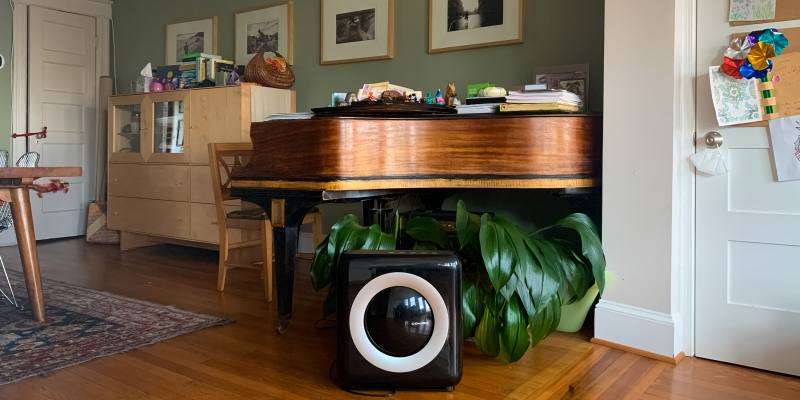
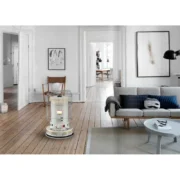
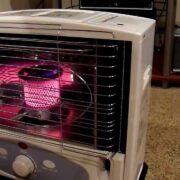
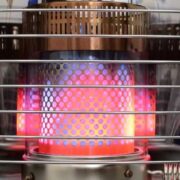
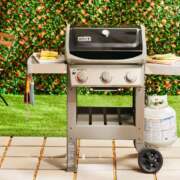


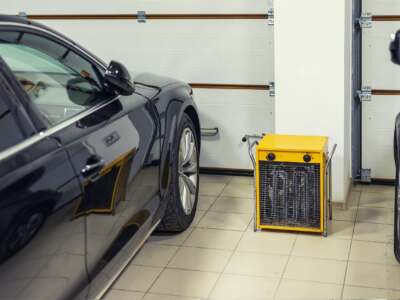
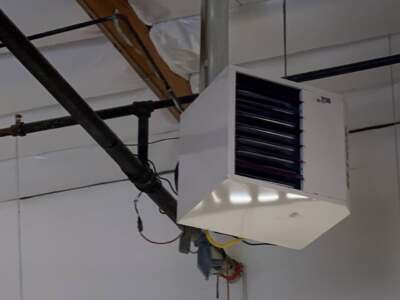
Comments